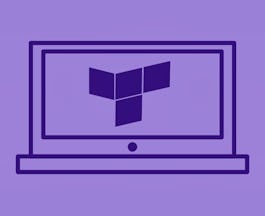Filter by
The language used throughout the course, in both instruction and assessments.
Explore the UNIX Course Catalog


University of Colorado System
Skills you'll gain: Disaster Recovery, Business Continuity Planning, Security Management, System Monitoring, System Implementation, Cyber Security Policies, Compliance Auditing, Systems Administration, Governance, Information Systems Security, Unix, Change Management

Skills you'll gain: Hardware Troubleshooting, Network Security, General Networking, Network Administration, Infrastructure Security, Network Troubleshooting, Technical Support, Mobile Security, Desktop Support, System Support, Computer Hardware, Technical Services, Information Technology, Operating Systems, Mac OS, Virtualization and Virtual Machines, Test Planning, Microsoft Windows, Unix, Network Protocols


Duke University
Skills you'll gain: Cloud-Native Computing, Software Engineering, Distributed Computing, Cloud Storage, Extract, Transform, Load, Google Cloud Platform, Big Data, Software Development, Cloud Computing, Serverless Computing, Data Pipelines, Amazon Web Services, Command-Line Interface, Data Processing, Continuous Integration, Python Programming, Data Governance, NumPy, Unix Commands

Skills you'll gain: React Native, User Research, Persona (User Experience), Apple iOS, Restful API, Core Data (Software), Design Research, Version Control, Swift Programming, User Experience Design, Unix Commands, User Interface (UI), User Interface and User Experience (UI/UX) Design, Interaction Design, Git (Version Control System), GitHub, Apple Xcode, Algorithms, Jest (JavaScript Testing Framework), Mobile Development

Skills you'll gain: User Accounts, Unix, Systems Administration, File Systems, System Monitoring, System Configuration, Performance Tuning, Command-Line Interface, Data Storage, Data Management

Skills you'll gain: Infrastructure as Code (IaC), Terraform, Docker (Software), Kubernetes, Ansible, Containerization, Cloud Infrastructure, Cloud Management, Devops Tools, Cloud Computing Architecture, Application Deployment, Firewall, Infrastructure As A Service (IaaS), Security Controls, IT Automation, Unix, Bash (Scripting Language), Amazon Web Services, Amazon Elastic Compute Cloud, Unix Commands


Amazon Web Services
Skills you'll gain: Infrastructure as Code (IaC), AWS CloudFormation, IT Automation, Scripting, Bash (Scripting Language), Amazon Web Services, Command-Line Interface, Configuration Management, Amazon Elastic Compute Cloud, Automation, Shell Script, Continuous Monitoring, Infrastructure As A Service (IaaS), Patch Management

Skills you'll gain: Bash (Scripting Language), JSON, Shell Script, Unix Shell, Scripting, Linux Commands, Unix Commands, Scripting Languages, Command-Line Interface, Kubernetes, Restful API, Data Import/Export, Software Installation


Johns Hopkins University
Skills you'll gain: Bioinformatics, Data Visualization Software, Statistical Analysis, Data Analysis, Analysis, Command-Line Interface, Data Processing, Linux

Skills you'll gain: Firewall, Network Monitoring, TCP/IP, Networking Hardware, Data Storage, Network Protocols, Network Troubleshooting, Unix, General Networking, Linux, Linux Administration, Unix Commands, Computer Networking, Command-Line Interface, Network Routing, Data Storage Technologies, Systems Administration, System Configuration, Remote Access Systems, Linux Commands

Skills you'll gain: Shell Script, Linux, Linux Administration, Linux Commands, File Systems, Unix Shell, User Accounts, Command-Line Interface, Systems Administration, File Management, Package and Software Management, Unix Commands, Authorization (Computing), Patch Management, Scripting Languages, Security Controls, Data Storage, Scripting, Dynamic Host Configuration Protocol (DHCP), System Configuration

Skills you'll gain: Kubernetes, Docker (Software), Containerization, Application Deployment, Unix, Unix Commands, Devops Tools, Virtual Machines
Unix learners also search
In summary, here are 10 of our most popular unix courses
- Planning, Auditing and Maintaining Enterprise Systems: University of Colorado System
- Practice Exams for CompTIA A+ Certification: Core 1 & Core 2: IBM
- Cloud Data Engineering: Duke University
- Desarrollador de Meta de IOS: Meta
- System Administration with IBM AIX: Getting Started: IBM
- Containers in the Cloud: Codio
- Automation in the AWS Cloud: Amazon Web Services
- Jq Command Tutorials for Bash Shell Scripting: Packt
- Bioinformatics Methods for Transcriptomics: Johns Hopkins University
- Connecting to Devices and Networks: Codio














